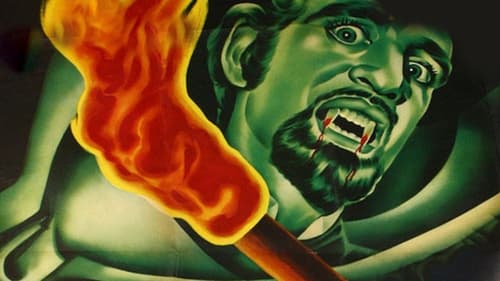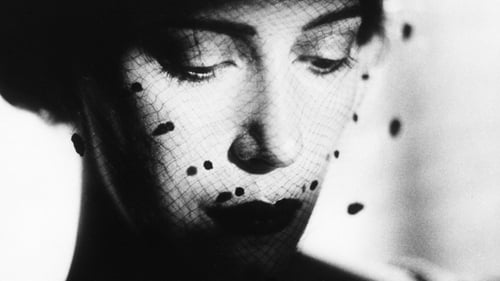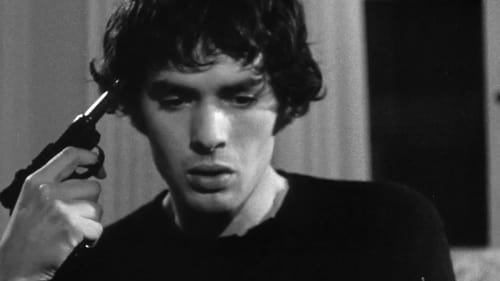The Seer Who Walks Alone (1985)
Género : Documental
Tiempo de ejecución : 50M
Director : Govindan Aravindan
Sinopsis
Documentary about the teachings of Jiddu Krishnamurti.

In this East German film, the third one in The Third is Margit's third lover. After her mother's death, Margit has two affairs which don't work out, and one lesbian friendship which she retains. She is looking for a husband, though, and thinks she has spotted a candidate in her fellow factory worker. As she contemplates marrying him, her story is told in a series of flashbacks.

In order to stop a vampire from terrorizing the countryside, some locals decide to break into his coffin at night and steal his ashes. Complications ensue.

Otto Scheidel (Manfred Krug) has been captain of the Elbe steamer Jenissei for over twenty years, but his ship, the last of its kind, is going to be converted into a floating restaurant. Otto, whose his strong attachment to the ship has already cost him his relationship with his girlfriend Caramba (Renate Krößner), refuses to take another job and instead joins a railway construction brigade.

El Dr. Caronte y su grupo de científicos locos construyen una bomba de neutrones con la que intentan chantajear al mundo libre para obtener el poder global. Pero aparece el héroe, Neutrón, que, con ayuda del Dr. Thomas y la reportera Nora, echan a perder tales planes.

Vampire hunters track down a vampire and attempt to steal the ashes from his coffin in order to stop him from reviving nightly.

A Eugenio, un chico de catorce años, lo recoge en casa de sus abuelos "Bigote", un amigo de la familia, para llevarlo a la casa de su padre en la ciudad. Pero a Bigote le molesta tanto el chico que acaba abandonándolo en medio del campo. Cuando el padre se entera, va a buscarlo.

One night Jorge will meet with a Japanese industrialist, who will allow him to abandon his teaching position and resume his chemical work. However, when he gets home he finds a person there.

The film portrays the Swedish playwright, novelist, poet, essayist and painter August Strindberg's life 1849-1912. Through his extensive correspondence and literary production, from the supposed first work, the drama "The Free Thinker" (1869), to the posthumously published "The Occult Diary" (published 1977 ). But also his three wives, Siri von Essen, Frida Uhl and Harriet Bosse, and the children Karin, Greta and Hans are given space in the film. The unpublished first drama "The Free Thinker", depicts a young man forced to break with family and tradition to follow his conscience and ideals, becomes a prophecy about the author's own life.

An elegant meditation on time, travel, and ceremony in the form of a journey. In her first foray into digital video, Minh-ha deconstructs the role of ritual in mediating between the past and the present. She explains, "Shown in their widespread functions and manifestations, including more evident loci such as festivals, religious rite and theatrical performance, 'rituals' involve not only the regularity in the structure of everyday life, but also the dynamic agents in the world of meaning." With its lush imagery, Minh-ha's Japan is viewed through mobile frames, with doors and windows sliding shut, revealing new vistas as it blocks out the old light.

Un joven de clase media tiene un romance con una chica muy humilde durante las vacaciones de sus padres.

A short film that sets up an opposition between functional forms of industrial age and decorative ones from Indian tradition.

In this picture, the barrier epitomizes the line between reality and dreams, the pattern of harmony and happiness. The delicate, pretty, sensitive Dorotea and the sedate middle-aged composer Antoni meet by chance. He gives her shelter in his house. Famous composer falls under the spell of young Dorothea: A pretty, thin-skinned, though quite an eccentric girl.

Barbara, a young girl, lives in an old country house with her father and her teacher. One night, she dreams that a fireman enters her room through the window. Having grown, Barbara leaves her father to travel across the world, before coming back to her childhood fantasies: one day, she calls the firemen, and locks herself with one of them in her bedroom.

Now Titus' father has died, the new emperor will be free to marry his beloved Bérénice. Also In love with Bérénice, Titus' friend Antiochus plans to flee Rome rather than face the marriage. However, public opinion about the pairing causes Titus to choose his duty to Rome over his love for Bérénice, and he sends his love rival to tell Bérénice the news...

Lisandro Alonso vuelve a La Pampa, y para esto llama a Misael Saavedra, el protagonista de su primera película, "La Libertad".

A young couple go on a picnic in the forest, where the woman reveals that she is pregnant.

A Soviet dam project means that many old Ukrainian villages will end up under water. There are conflicts between the dam engineers and villagers who don't want to move.

A stripped-down account of a young man's existential reckoning. "As dust hides a mirror, lust hides the self," reads one of the film's Vedanta-sourced intertitles. And indeed, while the Pierre Clementi protagonist's inner life remains obscure, the Saint-Germain-des-Pres neighborhood that offers his temptations appears in harrowing detail.

Keiko Suzuki is a lonely waitress in Tokyo. Her father passes away of cancer and she becomes obsessed with the passage of time. And so, three weeks before her 22nd birthday, she decides to record this period of time in the most accurate way possible, regardless of how lonely or banal this record ends up being.

Aunque el matrimonio de Françoise y Henri marcha bien, él tiene una aventura romántica que es descubierta por una amiga de su mujer. Resentida por la infidelidad de su marido, Françoise se muda a la calle de la Estrapada, situada en un barrio de artistas bohemios. Allí sucumbirá a los encantos de Robert, un joven y desaliñado músico existencialista, que carece de recursos.


















